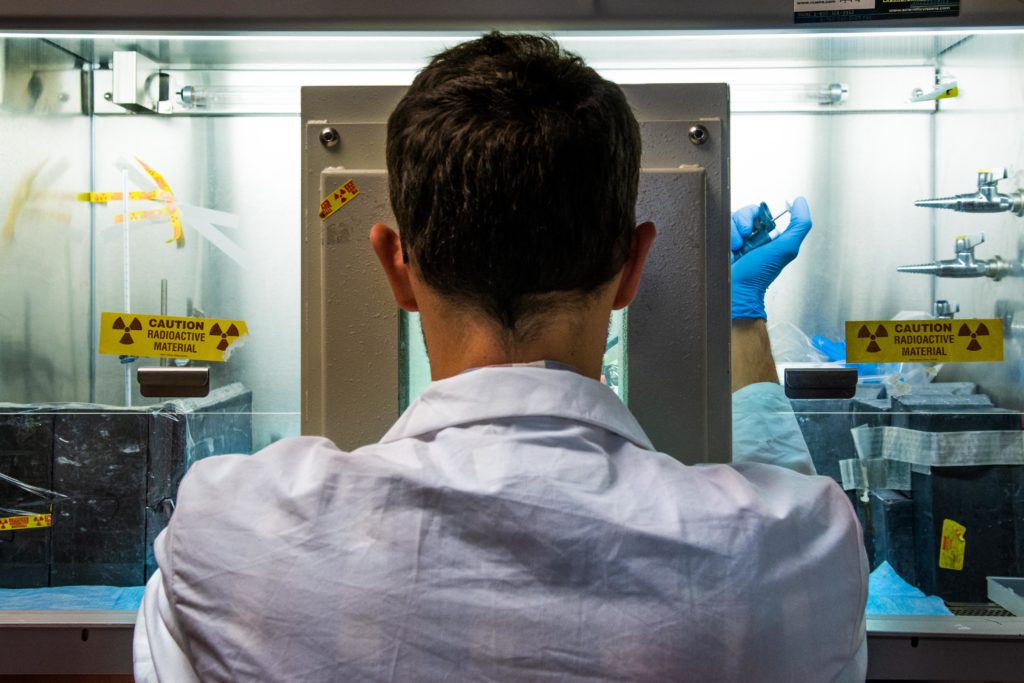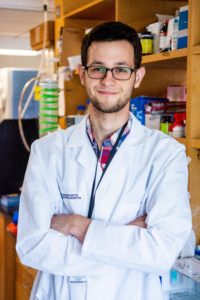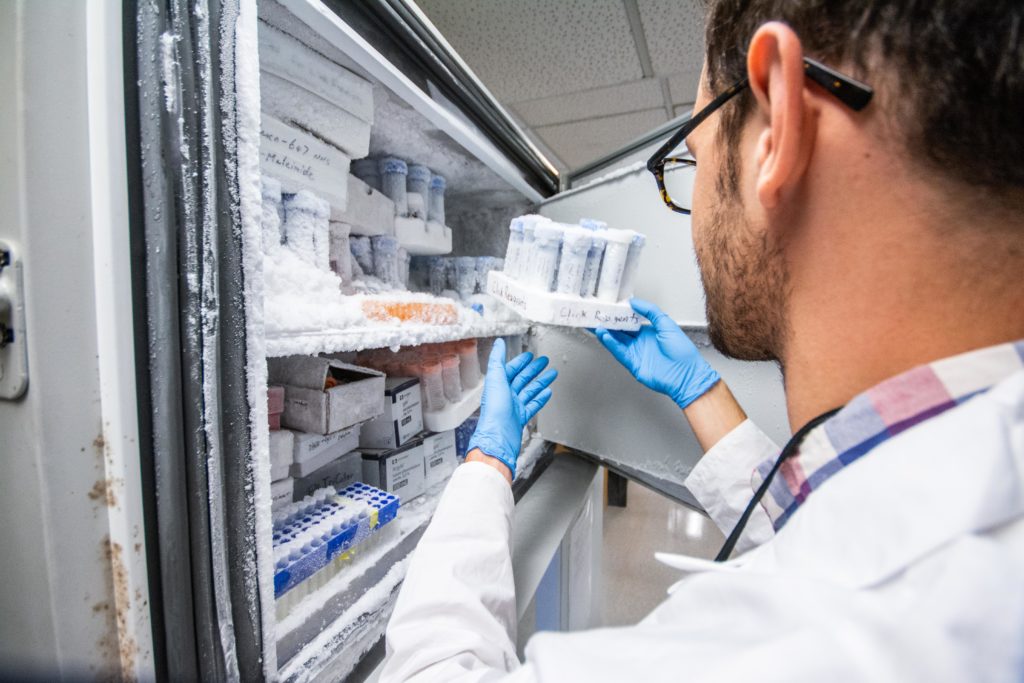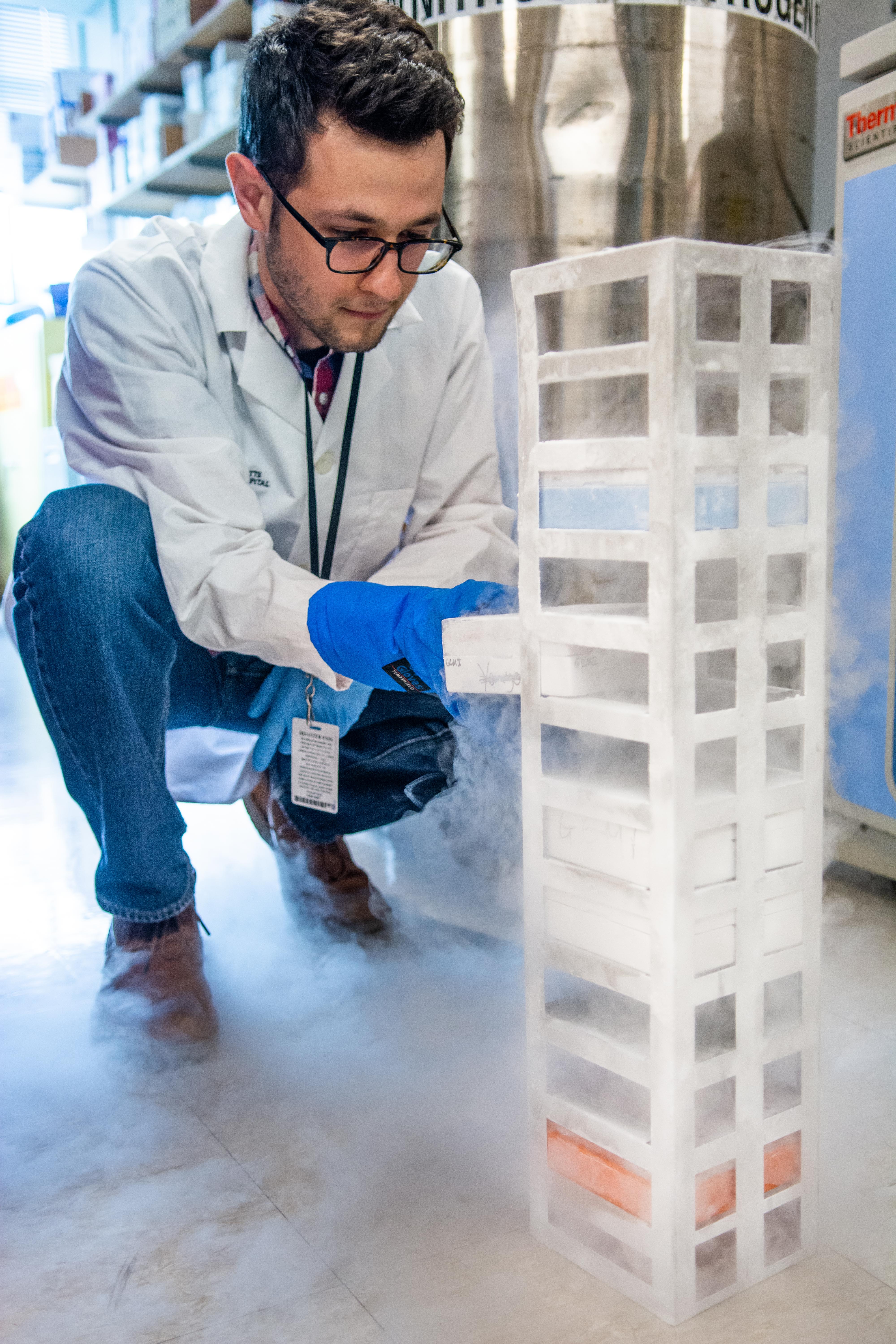White fog spills out of the freezer as Brian Cortese opens its lid. He reaches a thickly gloved hand down into the cloudy soup and draws out a stack of samples. He carefully removes one of the trays stacked in a thin container that looks like a miniature skyscraper still under construction. The samples are kept in liquid nitrogen, and Brian uses them to improve imaging techniques for cancer research on his co-op at the Gordon Center for Medical Imaging at Massachusetts General Hospital. The head of Brian’s lab, Dr. Georges El Fakhri, is the Director of the Gordon Center and Director of the MGH PET Core.
Cortese has spent a lot of time in the lab since he started working there on his first co-op. “I started in January 2017, worked for six months, and basically have been working part or full time since then.”
A fourth-year senior, Brian is a Biochemistry major on the pre-med track. When he started looking for co-ops in his sophomore year, he already knew he wanted to do clinical research. While looking through the list of co-ops, he stumbled upon the CaNCURE program, which brings Northeastern undergraduates into cancer nanomedicine research.
“When I looked at CaNCURE, I thought, this was the one. I threw basically all of my eggs in one basket… and it worked out really well.”

CaNCURE, a joint Northeastern and NIH National Cancer Institute funded program, trains undergrads in cancer research by matching co-op students with mentors in heavy-hitting institutions like Dana-Farber, the T. H. Chan School of Public Health, Harvard Medical School, Mass General Hospital, and more.
Brian is not the only co-op in the El Fakhri lab. Alexandra Jones is a fifth-year Health Science student that works across the bench from him. Both Alexandra and Brian are working in medical imaging, learning how to read and analyze images from PET and CT scanners. Their day-to-day, however, extends far beyond image analysis. Days for Brian often started with work on the biology side of things, culturing cells for experimental trials that he would then run that afternoon, and analyze for a couple days afterwards.
 Brian ran down the list, “we do everything from organic synthesis to surface chemistry and then use that nanoparticle we make to put that in cancer cells then use those cancer cells to run fluorescence studies and radioactivity studies and then eventually put those tumors in mice, image the mice and analyze all of it.”
Brian ran down the list, “we do everything from organic synthesis to surface chemistry and then use that nanoparticle we make to put that in cancer cells then use those cancer cells to run fluorescence studies and radioactivity studies and then eventually put those tumors in mice, image the mice and analyze all of it.”
Put more simply, “we do everything, the whole range.”
For Brian, the co-op has meant more than lab experience.
“There’s a lot more to it that just learning the bench and the lab skills. It’s about how to think, it’s about meeting new people, and it’s really all about the mentorship that will help you reach your potential long term.”
Through his co-op, Brian met countless people more than willing to help him on his journey, and he’s been able to make strides in his career because of them.
“I’ve gotten personal letters of recommendation. I’ve gotten my medical school application reviewed several times by people who have been on admissions committees… I now have several medical school interviews lined up… and I really would attribute it to the fact that I’ve spent so much time invested in this CaNCURE program.”
After his co-op at the Gordon Center ends, Brian hopes the mentorship and connections he gained through his CaNCURE experience will help him continue his education in medical school, where he hopes to pursue a career as a physician scientist.
If you are interested in the CaNCURE program, check out their website here.


